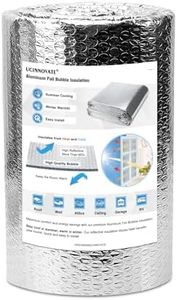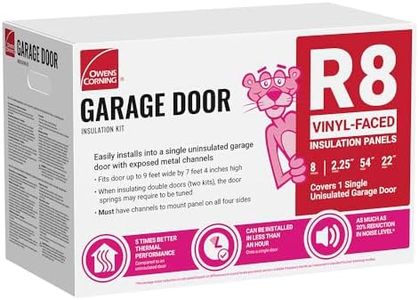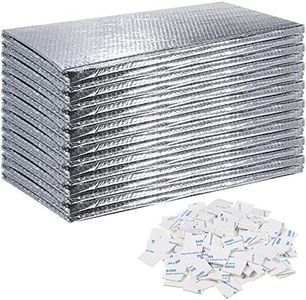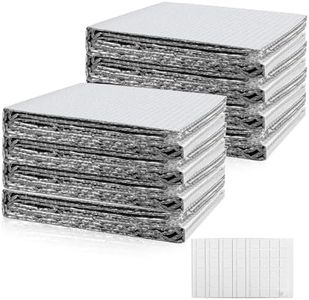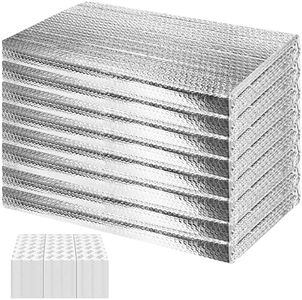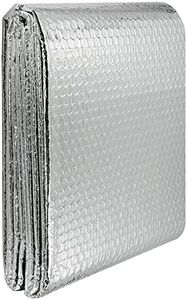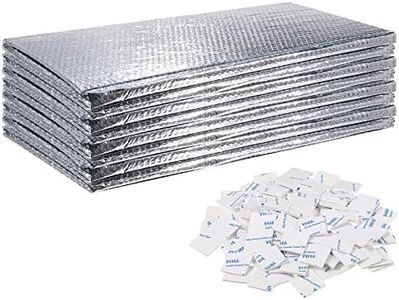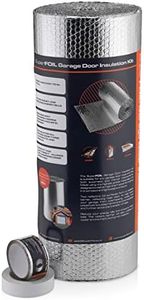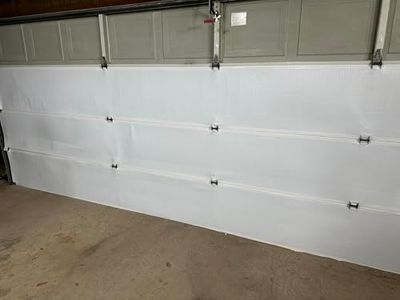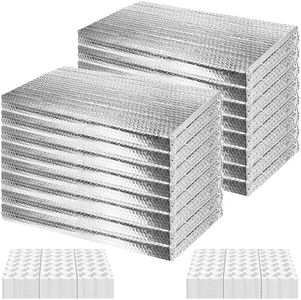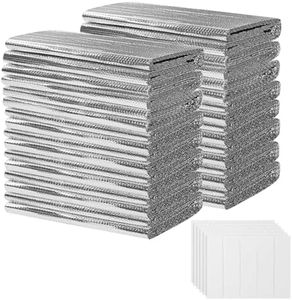We Use CookiesWe use cookies to enhance the security, performance,
functionality and for analytical and promotional activities. By continuing to browse this site you
are agreeing to our privacy policy
10 Best Garage Door Insulation Panels
From leading brands and best sellers available on the web.By clicking on a link to a third party's website, log data is shared with that third party.
Buying Guide for the Best Garage Door Insulation Panels
Choosing the right garage door insulation panels can make a significant difference in keeping your garage comfortable, saving energy, and even protecting stored items from extreme temperatures. The process involves thinking about your climate, how you use your garage, and your own skills with installation. Focus on product features that fit your needs rather than just picking the thickest or most expensive option.Insulation MaterialInsulation panels come in different materials such as polystyrene, polyurethane, and fiberglass. This spec refers to what the panel is made from, which influences how well it insulates, how easy it is to install, and its durability. Polystyrene is lightweight and easy to handle, polyurethane offers higher insulation values for its thickness, while fiberglass is flexible but requires careful handling. Think about whether you need maximum insulation performance, ease of DIY, or moisture resistance and pick the material accordingly.
R-valueR-value measures the insulation’s ability to resist heat flow—the higher the R-value, the better it insulates. Lower values (R-4 to R-6) offer basic improvement, which is fine if your garage is not used much or your climate is mild. Medium values (R-7 to R-9) are good for people who use their garage for hobbies or want extra energy efficiency. Higher R-values (above R-10) suit garages used as living spaces or those in very hot or cold regions. Think about how you use your garage and your local climate to decide the R-value you need.
Panel ThicknessPanel thickness can range from about 1 inch to over 2 inches. Thicker panels usually offer better insulation but may not fit all garage door designs. Measure your garage door panels to make sure the insulation will fit without interfering with door operation. For standard home garages, 1 to 1.5 inch thickness is often sufficient, while unfinished or high-use spaces may benefit from thicker panels. Choose thickness based on your installation limitations and desired insulation performance.
Panel Size and FitGarage door panels and insulation panels come in different sizes. This spec tells you if the insulation will fit your garage door without cutting or adjusting. Some insulation panels are pre-cut for standard garage doors, while others are trimmable. If you have a custom-sized or older door, look for panels that can be easily trimmed. Check measurements and make sure the panels will fit tightly to prevent gaps and air leaks.
Installation MethodSome insulation panels snap into place, some are glued, and others use fastening clips or tape. This spec matters if you prefer a DIY install or if you need a solution that won’t damage your garage door. Choose a method that matches your comfort level with tools and installation; easy-to-install panels are better for beginners, while more involved methods may provide a tighter seal if you’re experienced.
Moisture ResistanceGarage doors are exposed to humidity and temperature swings, so moisture resistance is important for preventing mold or material breakdown. Some materials, like polystyrene and polyurethane, are more moisture-resistant, while others may need a vapor barrier. If you live in a humid area or use your garage for storage, prioritize panels with good moisture resistance.
